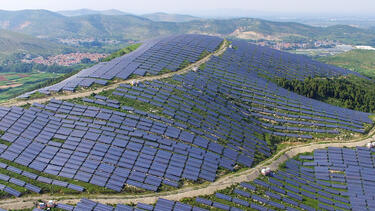Sustainability
Are Companies Abandoning Climate Action?
Last week, Bloomberg reported that mentions of climate change and other environmental topics in corporate earnings calls have dropped by 75% since they peaked three years ago. We asked Yale SOM’s Todd Cort what the change of emphasis says about the state of corporate sustainability efforts.
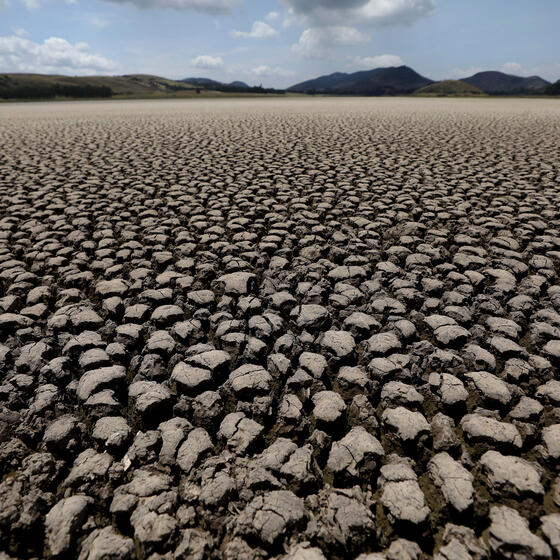
Transforming Energy Infrastructure
We talked to Elliott Mainzer ’98, who recently began a role overseeing California’s electrical grid, about the progress he’s witnessed and the challenges that remain in creating a fully sustainable energy network.

A Climate for Change
Judy Samuelson ’82, executive director of the Aspen Institute’s Business and Society Program, explores whether this cataclysm will trigger lasting change.
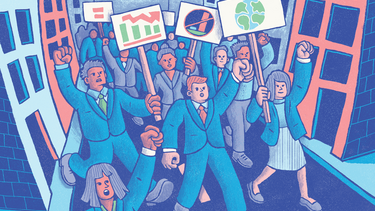
Can We Make Recycling Work?
The ubiquitous blue bin for single-stream recycling obscures a set of tradeoffs and challenges, including contamination that complicates processing and lowers the value of recyclable materials.

Faculty Viewpoints: Will COVID-19 Set Us on a More Sustainable Path?
In the short term, COVID-19 has brought about what activists and governments haven’t been able to achieve: a sharp drop in carbon emissions. What does the pandemic mean for the longer-term trajectory of efforts to remake our economy in a sustainable way?

Consumption, Numbers and Time: The Arithmetic of Sustenance
On the 50th anniversary of the first Earth Day in 1970, Yale SOM’s Shyam Sunder writes that humankind must grapple with a fundamental threat to our survival.

Can Jeff Bezos’s $10 Billion Climate Pledge Make a Difference?
We asked Todd Cort, co-director of the Yale Center for Business and the Environment and an expert on sustainable finance, if Bezos’s money was a significant step toward a solution.
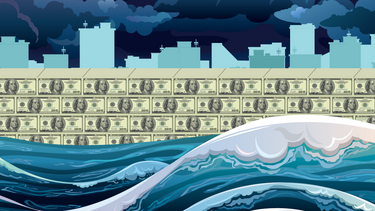
Researchers Propose New Method to Hedge against the Risk of Climate Disaster
Markets could be a huge part of mitigating climate risk. A proposal from Yale finance faculty seeks to make that a reality.
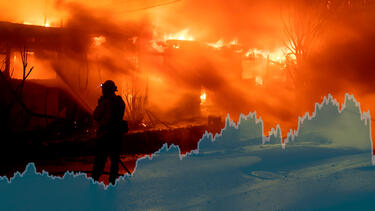
For a Path to a Decarbonized Economy, Look to the States
Robert Klee, a lecturer at Yale and the former commissioner of the Connecticut Department of Energy and Environmental Protection, says that state-level approaches to the climate crisis provide a roadmap for a 10-year, trillion-dollar effort to put the U.S. on a path to decarbonization.
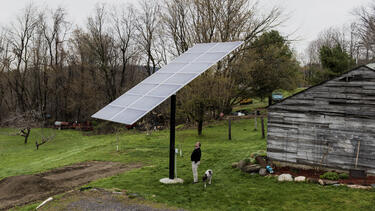
Energy Companies Have the Power to Act with Purpose
Rich Lesser, CEO of the Boston Consulting Group, and Yale SOM’s Jeffrey Sonnenfeld write that when government fails to address the threat of climate change, businesses must lead.

Why We Need Finance to Fight Climate Change
There won’t be a transition to clean energy without a way to finance what could be the largest infrastructure project ever undertaken. Yale Insights talked with Jeffrey Schub ’13 of the Coalition for Green Capital about what a National Climate Bank could achieve.
